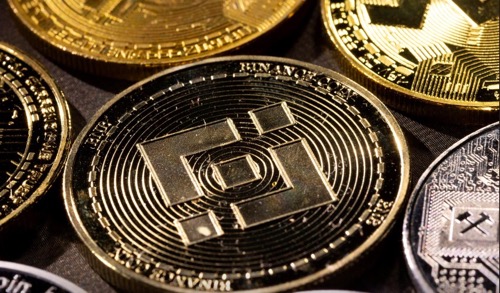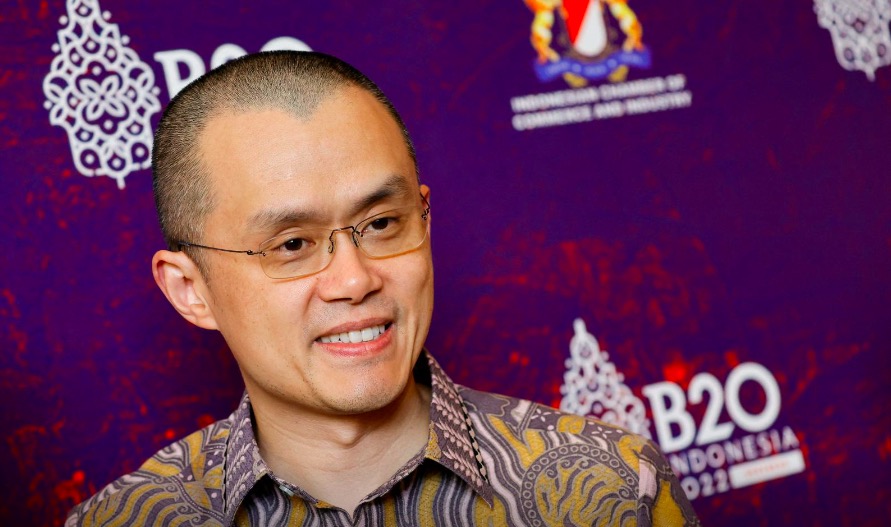Reuters full text: Binance's anti-money laundering controls are weak, and the US Department of Justice has investigated Binance for 4 years
Author: Angus Berwick, Dan Levine, Tom Wilson
Original compilation: PANews Wang Eryu
Editor's note:Binance responded to Reuters’ reports of criminal charges against executives, including the Binance founder, saying that now they are attacking our incredible law enforcement team. Binance has arguably the strongest security and investigations team in the industry. The number of Binance security and compliance personnel has increased by more than 500% in the past year. Since November 2021, Binance has responded to more than 47,000 law enforcement requests with an average response time of three days, and participated in 70 law enforcement requests with global law enforcement agencies. Multiple anti-cybercrime workshops. Additionally, Binance became the first blockchain and cryptocurrency company to join the National Cyber Forensics and Training Alliance (NCFTA).
The following is the full text of Reuters:
The U.S. Department of Justice’s protracted criminal investigation into Binance may still be inconclusive due to disagreements among prosecutors, Reuters reported, citing four people familiar with the matter.

The investigation began in 2018 and focused on whether Binance violated U.S. anti-money laundering laws and sanctions, the people said. At least half a dozen federal prosecutors were involved, with some arguing they had gathered enough evidence to take aggressive action against Binance and bring criminal charges against individual executives, including founder Changpeng Zhao. Other prosecutors believe time is still needed to review more evidence.
The investigation involved prosecutors from three DOJ offices: the Money Laundering and Asset Recovery Section (MLARS), the U.S. Attorney’s Office for the Western District of Washington in Seattle, and the National Cryptocurrency Enforcement Team. The Department of Justice stipulates that money laundering charges against financial institutions must be approved by the head of MLARS. Any action against Binance would likely also need to be signed off by the heads of two other offices, as well as higher-ranking Justice Department officials, the sources said.
Reuters interviewed more than a dozen people familiar with the case, including current and former U.S. law enforcement officials and former Binance consultants, and reviewed the company's relevant records to piece together the most comprehensive investigation to date and reveal How Binance is coping with the investigation. Reuters was also the first to disclose prosecutors' opinion on Binance's charges.
For the encryption industry in deep trouble, this investigation will undoubtedly have a major impact. If the investigation turns out to be negative for Binance and Changpeng Zhao, it could weaken Binance's grip on the industry. Earlier, competitor FTX Thunderbolt further strengthened Binance’s position.
Binance’s U.S. law firm, Gibson Dunn, has met with Justice Department officials several times in recent months, people familiar with the matter said. Binance's defense included that criminal prosecution would deal a severe blow to the cryptocurrency market, which has been mired in a prolonged downturn. Discussions between the two sides also touched on a possible plea option.
A spokesman for Binance said: “We have no knowledge of the inner workings of the DOJ, and would not comment even if we did.” The DOJ declined to comment.
The investigation charges include undocumented money transfers, conspiracy to launder money and violation of criminal sanctions, the sources said. Executives such as Changpeng Zhao have been the subject of investigations, but prosecutors have yet to make a final decision on charges. It is possible that the DOJ could prosecute Binance and its executives and negotiate a settlement, or close the case without action.
There is little information on the case so far. Reuters earlier reported that prosecutors had asked Binance in 2020 to provide numerous internal records about its anti-money laundering inspections, as well as communications involving Changpeng Zhao and other executives.
Binance, which has experienced explosive global growth, has been shadowed by the investigation for much of its five-year history, new reports suggest, and has had a major impact on how Changpeng Zhao manages the company. Last year, he embarked on a hiring spree, including hiring officials from the IRS Criminal Investigations Division, one of the divisions investigating Binance. Changpeng Zhao also implemented strict confidentiality regulations for employees, requiring employees to avoid using emails as much as possible and use encrypted messaging services as much as possible.
Reuters examines Binance's financial crime compliance in 2022. Reports say Binance’s anti-money laundering controls remain weak, processing more than $10 billion in payments for criminals and companies seeking to evade U.S. sanctions and evade regulation in the U.S. and other jurisdictions.
Binance refuted the reports, saying the calculations about the illicit funds were inaccurate and that descriptions of its compliance processes were “outdated.” Binance said it was "actively promoting industry standards" and seeking to "further improve our ability to detect illegal crypto activity on the platform."
Founded in Shanghai by Changpeng Zhao in 2017, Binance now dominates the cryptocurrency industry. The transaction volume in October was about 1.6 trillion US dollars, accounting for about half of the entire encryption market. According to CryptoCompare data, its previous challenger FTX had a transaction volume of only $230 billion in the month.
FTX’s thunderstorm in November triggered a wave of voices calling for more regulation of the encryption industry. FTX founder Sam Bankman-Fried once boasted that his exchange was “most regulated,” but he is based in the laxly regulated Bahamas and the company uses customer deposits in secret. Reuters reports that the U.S. Department of Justice has opened an investigation into how FTX handled the company’s funds. FTX lawyers described the exchange as almost a “private fiefdom” for SBF during the bankruptcy hearing. SBF says it did not knowingly engage in any wrongdoing.
People familiar with the Justice Department’s operations said it was unclear whether the new probe would speed up or slow down the investigation into Binance.
Changpeng Zhao, who declined to say where his exchange is located or the entity behind it, hastened FTX’s collapse by announcing that Binance would sell its holdings of FTX’s native tokens. The announcement sparked a run on FTX users, which eventually forced FTX to file for bankruptcy.
Changpeng Zhao wrote in a blog post a few days later that Binance “must lead by example” to move the industry forward, “We cannot allow some bad actors to tarnish the industry’s reputation.”

"Armed With Lawyers"
Prosecutors from the U.S. Attorney’s Office in Seattle began investigating Binance in 2018 after a wave of criminals using it to move illicit funds, people familiar with the matter said.
The Seattle office later began working with MLARS and the IRS Criminal Investigations Division to pursue the case.
Binance also began dealing with possible U.S. enforcement action that year. In October 2018, the minutes of a meeting attended by Changpeng Zhao wrote: "Arming up with lawyers in the United States to deal with regulatory risks."
The U.S. Bank Secrecy Act, designed to protect the U.S. financial system from illicit financing, requires cryptocurrency exchanges with “substantial” operations in the U.S. to register with the Treasury Department and comply with anti-money laundering requirements. Binance never completed this process, and according to a blog post by the company, nearly one-third of Binance’s users came from the United States the year it was born.
Reuters reported in October that Changpeng Zhao set up a new U.S. exchange to help Binance evade U.S. regulation, on the advice of a consultant, to attract the attention of regulators. According to company sources, Changpeng Zhao became concerned that U.S. regulators had access to Binance’s internal records.
Binance recommended an encrypted messaging service in an employee guide that it said had an "auto-delete message" feature.
In 2020, Binance does not yet have a well-established legal department. The company’s legal chief, Jared Gross, was a former mergers and acquisitions lawyer with little experience with the government, according to people familiar with the matter. Facing the Justice Department investigation, Binance hired outside counsel Roberto Gonzalez from the US law firm Paul Weiss, who was formerly the Treasury Department’s deputy general counsel. Gross, who left the company last year, did not respond to a request for comment. Gonzalez and Paul Weiss declined to comment.
In December 2020, two MLARS attorneys and a Seattle prosecutor represented the Department of Justice in a letter to Binance (addressed to Gonzalez) requesting all documents including information regarding “destroyed, altered, or removed from Binance files” or “improper information.” shall be submitted in writing" for the record. It also requested communications involving Changpeng Zhao and 12 other Binance executives and advisors.
A few days later, one of the men named in the letter called his adviser in a panic. The caller indicated that Binance had difficulty responding to the DOJ request because many records related to the request had been expunged under Changpeng Zhao’s confidentiality rules. These include Changpeng Zhao’s approval of Binance.US’ financial decisions. Binance.US is an independent U.S. exchange that has publicly claimed to be “completely independent” from Binance’s main platform.
A spokesperson for Binance.US called Reuters’ questions “full of false insinuations,” adding that Binance.US is an independent entity with its own leadership team that “has sole responsibility for the decisions and activities of the entire company.”
Text messages and phone records obtained by Reuters show that the call did exist and that it involved the Justice Department's December 2020 letter. The consultant described the call to Reuters but declined to identify himself or the caller.
Reuters, which first reported the Justice Department letter, was unable to determine how Binance ultimately responded to the request.
rookie
The following year, Binance began recruiting everywhere. It hired at least five former officials from the IRS Criminal Investigations' cybercrime unit, including a new global investigations chief named Tigran Gambaryan. Binance said Gambaryan’s team will detect and prevent criminal activity on the platform and work closely with law enforcement.
As an IRS criminal investigator, Gambaryan has led the investigation of several notorious cryptocurrency crimes, including the Silk Road darknet drug market and the underage pornography violence site known as Dark Scandals. Gambaryan was not involved in the Binance investigation but has close ties to those who did, the people familiar with the matter said.
According to people familiar with the matter, Binance has launched a recruitment plan specifically for US law enforcement officials, and the salary is much higher than that of many other financial and encryption companies.
Gambaryan did not respond to a request for comment. Binance told Reuters: "We are proud to include some of the most prominent cyber investigators on our team, who represent nearly every major international law enforcement agency in the world." Binance said the company has about 300 investigators dedicated to "Protecting Users from Illegal Actors".
In August 2021, Binance ended its policy of allowing users to open accounts with email addresses alone. Criminals of all kinds, from Russian drug dealers to North Korean hackers, have exploited this policy to move funds anonymously through Binance.
But even after Binance required all users to submit identification, loopholes remained in its compliance program. For example, Reuters reported last month that between then and November of this year, Binance processed more than $1 billion in transactions for Iranian crypto firms, putting the company at risk of violating U.S. sanctions.
In October 2021, Deputy Attorney General Lisa Monaco announced the creation of the National Cryptocurrency Enforcement Team (NCET) to investigate “criminal misuse of cryptocurrencies, particularly virtual currency exchanges.” In another speech that month, Monaco said the Justice Department's "top priority in dealing with corporate criminal cases" is to prosecute individuals who profit from corporate misconduct.
The Justice Department named Eun Young Choi, Monaco's former senior counsel, as the first head of NCET. Under Choi’s leadership, NCET began coordinating the investigation of Binance with the U.S. Attorney’s Office in Seattle and MLARS, people familiar with the matter said. They collected evidence from former Binance employees and business partners.
In recent months, prosecutors in the NCET and Seattle offices believed they had enough evidence to prepare charges against Binance and executives including Changpeng Zhao, people familiar with the matter said. But MLARS leadership has been hesitant to prosecute, which has drawn dissatisfaction from the investigative team.
MLARS has a reputation within the Justice Department for slow decision-making, according to people familiar with the matter. But in October, the Justice Department named a new chief for MLARS, Brent Wible, who previously worked in the Fraud Section and earlier served as a prosecutor for the Southern District of New York. Both agencies are keen to pursue cases more aggressively.
Binance has hired former MLARS head and Gibson Dunn partner Kendall Day to interface with the DOJ. Day has met with Justice Department officials in Washington in recent months, the people said. The two sides discussed a possible out-of-court settlement, in which the suspect could choose to plead guilty or pay a fine. Day did not respond to a request for comment.



